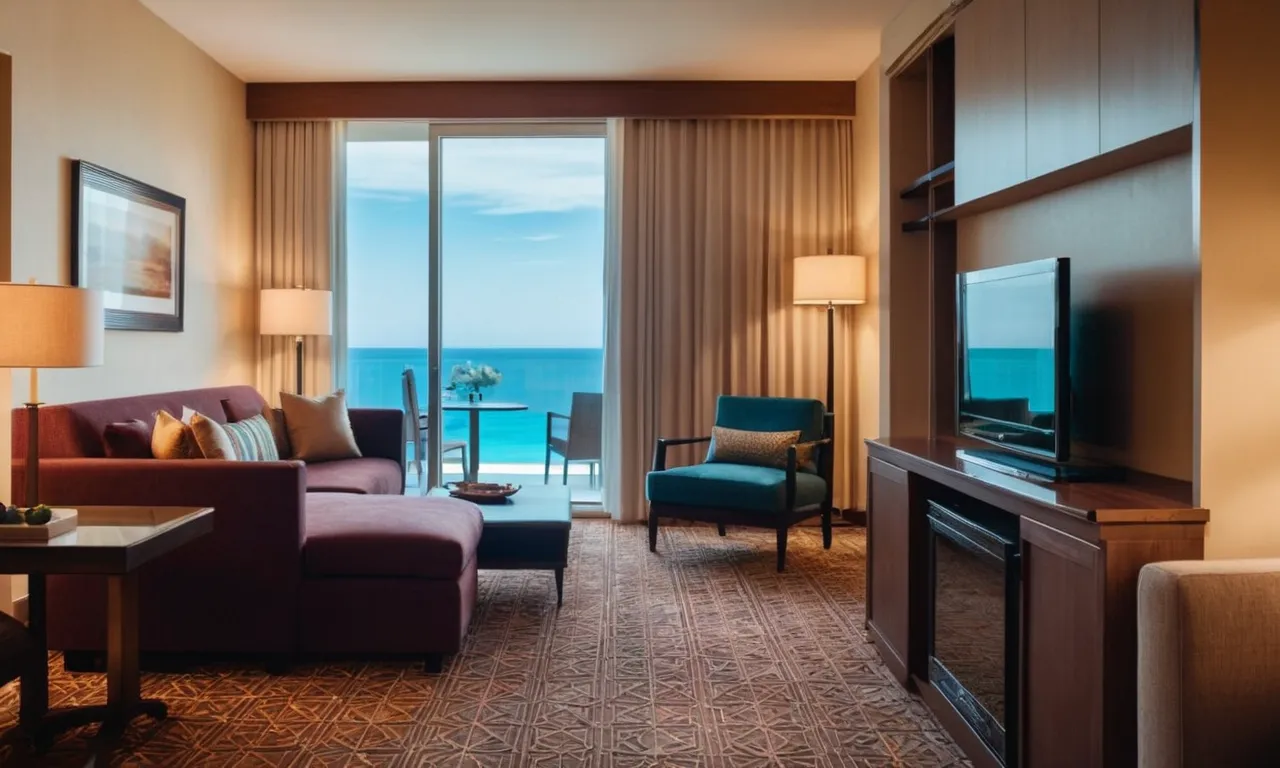Timeshare Vs Hotel: Understanding The Key Differences
Vacations are meant to be relaxing and enjoyable, but the accommodation choices you make can significantly impact your overall experience. Two popular options, timeshares and hotels, offer distinct advantages and drawbacks, and understanding their differences is crucial for making an informed decision.
If you’re short on time, here’s a quick answer to your question: A timeshare is a form of vacation ownership where you purchase the right to use a specific property for a set period each year, while a hotel is a temporary accommodation where you pay for your stay on a nightly or weekly basis.
In this comprehensive article, we’ll delve into the intricacies of timeshares and hotels, exploring their ownership models, costs, amenities, flexibility, and more. By the end, you’ll have a clear understanding of which option aligns better with your travel preferences and budget.
Ownership Models: Timeshare vs Hotel
Timeshare Ownership
A timeshare is a vacation ownership model where individuals purchase the right to use a specific property for a predetermined period each year. With timeshare ownership, you essentially own a fraction of a resort or vacation home, typically a week or more per year.
This ownership model allows you to enjoy the benefits of a vacation property without the full financial commitment of owning it outright.
According to the American Resort Development Association (ARDA) website, there are over 1,500 timeshare resorts across the United States, with an estimated 9.9 million households owning at least one timeshare interval.
Timeshare owners have the flexibility to exchange their timeshare week for a different location or time through exchange companies like RCI or Interval International. This flexibility allows for a diverse vacation experience year after year.
Hotel Ownership
In contrast to timeshare ownership, hotels operate under a different model. Hotels are typically owned and operated by companies or investors who provide temporary accommodation to travelers. When you stay at a hotel, you are essentially renting a room for a specific period, usually by the night or week.
You don’t have any ownership rights to the property, and your stay is transient.
Hotel ownership can be structured in various ways, such as:
- Franchised hotels: A hotel company grants a franchise to an owner or investor to operate under its brand name and follow its standards.
- Independent hotels: Privately owned and operated hotels without affiliation to a major hotel chain.
- Chain hotels: Hotels owned and operated by major hospitality companies like Marriott, Hilton, or Hyatt.
According to Statista, the largest hotel chain in the world by number of rooms is Marriott International, with over 1.4 million rooms across more than 8,000 properties globally. 😮 Unlike timeshares, hotels offer a more flexible and transient experience, catering to short-term stays for business or leisure travelers.
| Ownership Model | Timeshare | Hotel |
|---|---|---|
| Ownership Type | Fractional ownership of a vacation property | No ownership, transient rental |
| Usage Period | Predetermined weeks or days per year | Flexible, based on availability and booking |
| Flexibility | Exchange options available through companies | High flexibility for short-term stays |
Cost Comparison: Upfront and Ongoing Expenses
Timeshare Costs
Investing in a timeshare can be a significant financial commitment. The upfront costs, often referred to as the “buy-in” fee, can range from tens of thousands to hundreds of thousands of dollars, depending on the location, resort amenities, and ownership type (deeded or right-to-use).
According to RedWeek.com, a reputable timeshare resource, the average upfront cost for a timeshare is around $20,000. However, this is just the beginning.
In addition to the initial investment, timeshare owners are responsible for annual maintenance fees, which cover the resort’s operating expenses, such as staff salaries, utilities, and property upkeep.
These fees can range from a few hundred dollars to over a thousand dollars per year, and they tend to increase annually. Some resorts also charge special assessment fees for major renovations or improvements.
According to the American Resort Development Association (ARDA), the average annual maintenance fee for a timeshare in 2022 was $1,030.
Hotel Costs
In contrast, staying at a hotel typically involves lower upfront costs but higher ongoing expenses. While you don’t have to pay a buy-in fee, hotel room rates can vary significantly based on factors like location, season, and amenities.
According to Statista, the average daily rate (ADR) for hotels in the United States in 2022 was $148.10. However, this rate can be much higher in popular tourist destinations or during peak travel seasons.
Unlike timeshares, hotel stays don’t come with additional ongoing costs like maintenance fees. However, you’ll have to pay for each night you stay, which can quickly add up, especially for longer vacations or frequent trips.
Additionally, hotels often charge extra fees for amenities like parking, Wi-Fi, and resort fees, which can further increase the overall cost of your stay. According to Statista, the average resort fee in the United States was $28.69 in 2022.
| Cost Type | Timeshare | Hotel |
|---|---|---|
| Upfront Cost | High (Average $20,000) | Low (No buy-in fee) |
| Ongoing Cost | Annual Maintenance Fees (Average $1,030) | Nightly Room Rates (Average $148.10) |
| Additional Fees | Special Assessment Fees | Resort Fees (Average $28.69), Parking, Wi-Fi |
Amenities and Services: What to Expect
When it comes to amenities and services, timeshares and hotels offer distinct experiences. While both aim to provide comfort and convenience, their offerings can vary significantly. Let’s delve into the key differences:
Timeshare Amenities
Timeshares are designed to cater to a more residential lifestyle, often featuring amenities that resemble a home away from home. These properties typically offer:
- Fully equipped kitchens or kitchenettes, allowing you to prepare your own meals and save on dining costs.
- Spacious living areas, including separate bedrooms and living rooms, providing a sense of privacy and comfort.
- On-site recreational facilities, such as pools, hot tubs, tennis courts, and fitness centers, catering to various interests and activities.
- Access to exclusive resort amenities, including spas, golf courses, and private beaches, depending on the location and resort https://www.rci.com/pre-travel/top-resort-amenities.
Timeshares often foster a sense of community, with owners and guests sharing common areas and participating in organized activities. According to a survey by the American Resort Development Association (ARDA), over 85% of timeshare owners reported being satisfied with their overall timeshare experience, citing the amenities and services as key factors.
Hotel Amenities
Hotels, on the other hand, typically offer a more streamlined and service-oriented experience. Common amenities in hotels include:
- On-site restaurants and room service, providing convenient dining options without the need for cooking.
- Housekeeping services, ensuring your room is cleaned and refreshed daily.
- Concierge services, assisting with local recommendations, reservations, and other travel-related needs.
- Fitness centers, pools, and sometimes spas, catering to health and wellness needs.
- Business centers and meeting rooms, accommodating corporate travelers and events.
Hotels often pride themselves on providing top-notch customer service, with staff readily available to assist guests with any requests or concerns. According to a survey by Hotel News Resource, over 92% of hotel guests rated friendly and responsive staff as a crucial factor in their overall satisfaction.
| Amenity | Timeshare | Hotel |
|---|---|---|
| Kitchen/Kitchenette | ✅ | ❌ (Some suites may have) |
| Recreational Facilities | ✅ | ✅ (Limited) |
| On-site Dining | ❌ (Some may have limited options) | ✅ |
| Daily Housekeeping | ❌ (Limited service) | ✅ |
While timeshares offer a more home-like experience with extensive amenities, hotels prioritize convenience and personalized service. Ultimately, the choice between a timeshare or a hotel depends on your travel preferences, budget, and desired level of comfort and amenities. 😊
Flexibility and Vacation Planning
One of the key factors to consider when choosing between a timeshare and a hotel is the flexibility each option offers in terms of vacation planning and accommodations. Both timeshares and hotels have their own unique advantages and limitations in this regard.
Timeshare Flexibility
Timeshares provide a level of flexibility that hotels often cannot match. With a timeshare, you essentially own a piece of vacation real estate, giving you the ability to plan your vacations well in advance and secure your preferred dates and accommodations.
This can be particularly advantageous for families or those with busy schedules who need to plan their getaways far in advance. According to a study by the American Resort Development Association (ARDA), over 70% of timeshare owners reported that owning a timeshare made it easier to plan and coordinate vacations with family and friends.
Additionally, many timeshare companies offer exchange programs that allow owners to trade their week or points for stays at other resorts within the network. This added flexibility enables timeshare owners to explore different destinations while still enjoying the comforts of a familiar vacation experience.
The ability to exchange timeshare weeks or points can be a game-changer for those seeking variety in their vacation experiences.
Hotel Flexibility
While hotels may not offer the same level of long-term planning flexibility as timeshares, they do provide more spontaneity and short-term flexibility. With hotels, you can book your stay closer to your desired travel dates, allowing you to be more flexible with your plans.
This can be particularly appealing for those with unpredictable schedules or those who prefer to plan their vacations on a whim.
Hotels also offer a wide range of accommodation options, from budget-friendly rooms to luxurious suites, catering to different travel preferences and budgets. This flexibility allows you to tailor your stay to your specific needs and desires for each individual trip.
According to a report by Statista, the average hotel occupancy rate in the United States was around 60% in 2021, indicating a high level of availability and flexibility for travelers.
Ultimately, the choice between a timeshare and a hotel will depend on your personal travel preferences, budget, and desired level of flexibility. Timeshares offer long-term planning and the ability to exchange vacation destinations, while hotels provide more spontaneity and a wider range of accommodation options.
😊 Whichever option you choose, it’s essential to carefully consider your vacation needs and priorities to make the most informed decision.
Conclusion
Choosing between a timeshare and a hotel is a personal decision that depends on your travel preferences, budget, and lifestyle. While timeshares offer a sense of ownership and potentially lower long-term costs, they also come with a significant upfront investment and less flexibility.
On the other hand, hotels provide a more flexible and hassle-free experience, but with higher ongoing costs and no ownership benefits.
Ultimately, the decision boils down to your priorities. If you value a consistent vacation experience, enjoy the amenities of a resort-style setting, and are willing to commit to a long-term investment, a timeshare might be the right choice.
However, if you prefer the freedom to explore new destinations without long-term commitments and value the convenience of a hotel stay, then hotels may better suit your needs.








